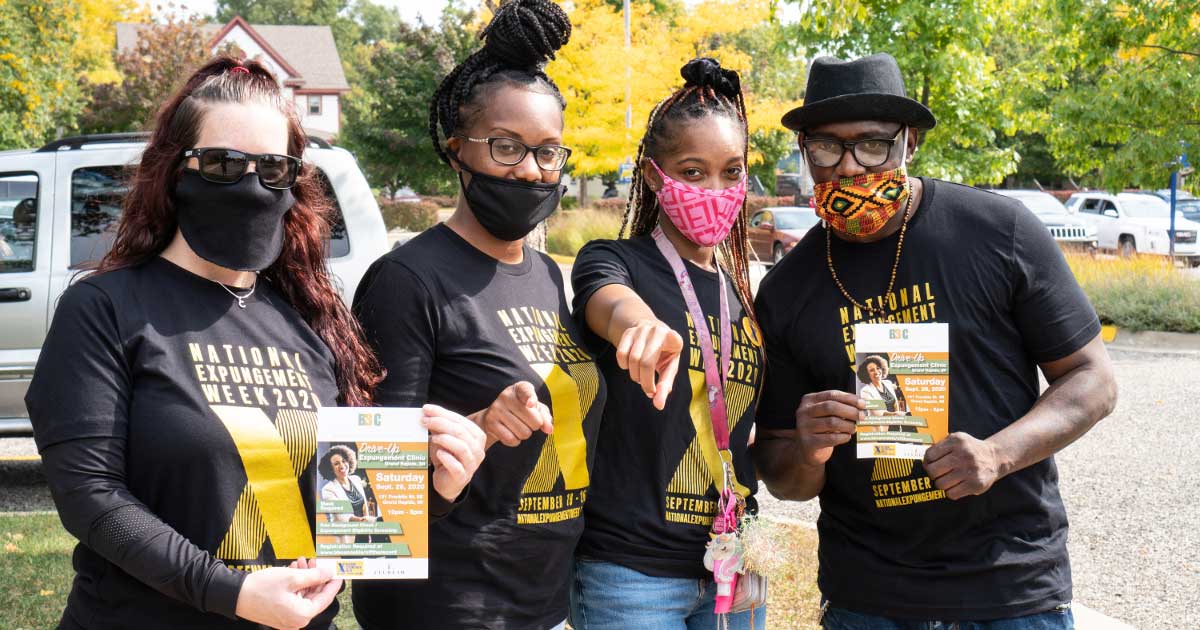Cannabis legalization has changed lives, creating jobs, developing taxes, saving people from jail and helping the country move toward normalization. This is a historic movement with a positive impact on the world.
Yet, we haven't reached the finish line. People are stuck in prison for doing something that is now legal, white people still own a vast majority of the industry, and federal law hinders research and funding.
Two years ago, Denavvia Mojet launched the Black & Brown Cannabis Guild to help fight for equity in the industry, starting with clearing criminal records, a.k.a. expungement. As part of their work, the Clean Slate bill package has gone into effect, expanding eligibility and slowly setting up an automatic process for expungement.
"The Michigan market still leaves a lot to be desired, but I'm hopeful," Mojet said. "I believe we're in the room with people who really want to see these changes come to fruition."
Less than 4% of cannabis licenses in Michigan are held by Black people, and only 1.5% are held by people who identify as Hispanic or Latinx. Meanwhile, there are people still in jails across Michigan at this very moment because they were paying their bills with cannabis money, while the state collects millions of dollars in taxes from the new industry.
Many people suffered before legalization, and many have thrived since—Casey Kornoelje of Pharmhouse Wellness has a foot in each camp.
Nearly 20 years ago, he received a felony for possession while still in high school. Afterwards, he was declined from the armed services, turned down from job after job, and had to go through workplace counseling. After years as a caregiver, he decided to put everything he had into joining this burgeoning industry with a retail business. Luckily, it's paid off—Pharmhouse is doing well thanks to quality product, great customer service and being fully local.
For Kornoelje, one of the biggest issues is how difficult it is for caregivers or other cannabis enthusiasts to actually enter the industry.
"Until there is a hard look at zoning considerations for smaller operators, I think it will be a tough hill to climb," said Kornoelje. "And you'll continue to see a concentration of ownership among well-funded and corporate-backed operators."
It's not that corporate-backed and multi-state operators are "bad," but an equitable industry of any sort allows for people of all kinds to enter and compete, and if justice is the goal, we'd be using this as an opportunity to make amends—with funding, jobs, expungement—to those we've harmed.
For now, you can help by pushing for actual change, following organizations like the Black & Brown Cannabis Guild, and supporting those in the industry who do it right. And while you're at it, feel free to have a celebratory joint.
"We should be celebrating that patients have access to cannabis now, and people with cancer and epilepsy and so on, they're going to get help," Mojet said. "Nothing takes away from the fact that I love where we are as a state. But I think we should be able to walk and chew gum. I should be able to say I love the Michigan marijuana market, and we still need to do better by cannabis prisoners."
Written by Josh Veal, Contributing Writer for West Michigan Woman. Edited by Sarah Suydam, Managing Editor for West Michigan Woman.
This article originally appeared in the Jun/Jul 2021 issue of West Michigan Woman.




